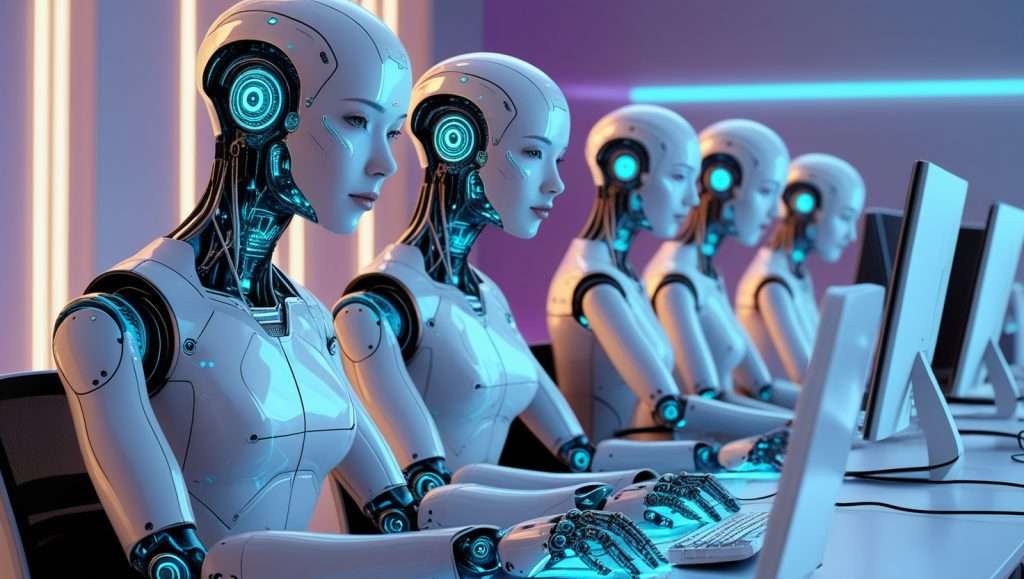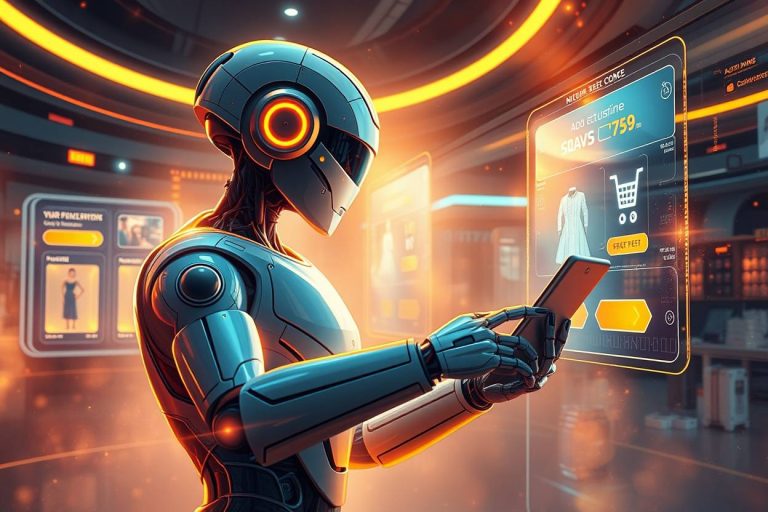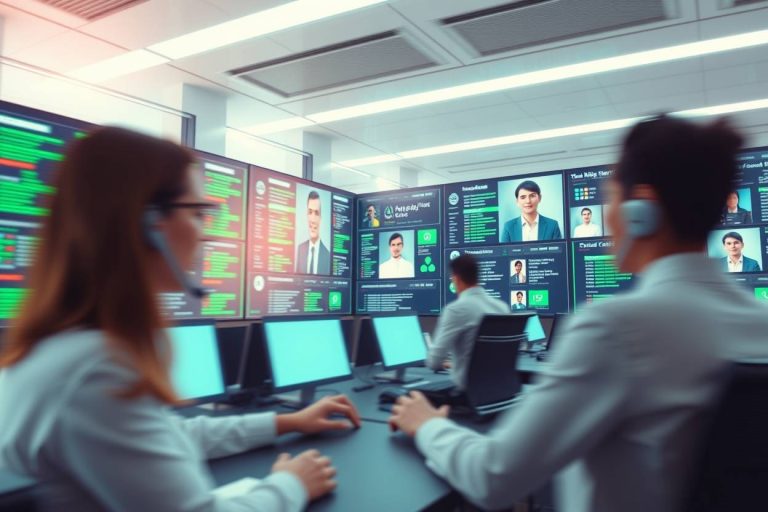AI Employees: The Future of Workforce Automation

AI Employees: The Future of Workforce Automation
In today’s rapidly evolving technological landscape, the term “AI Employees” is becoming a buzzword in discussions about the future of work. But what exactly does it mean, and how is it shaping the modern business world? AI employees refer to artificial intelligence systems designed to perform specific tasks traditionally handled by humans. These digital workers leverage machine learning, natural language processing, and advanced algorithms to automate operations, boost efficiency, and reduce costs. Let’s explore this concept in depth, including real-life applications and success stories.
What Are AI Employees?
AI employees are not humanoid robots but sophisticated software systems capable of mimicking cognitive functions like decision-making, problem-solving, and communication. These systems, often powered by AI agents and automation tools, handle repetitive or complex tasks, freeing up human employees to focus on strategic initiatives.
Unlike traditional automation tools, AI employees can learn and adapt over time. For instance, a customer service AI might start by answering basic FAQs but gradually learn to handle more nuanced interactions through natural language processing. They’re capable of handling data at scales and speeds unattainable by human workers, offering unparalleled efficiency and precision.
The Emergence of AI Employees
The rise of AI employees is fueled by advancements in automation technologies and the growing demand for efficiency in business operations. Key factors driving this trend include:
- Cost Efficiency: AI employees eliminate the need for salaries, benefits, and office space. Estimates suggest that implementing AI can reduce operational costs by up to 40% in some industries.
- 24/7 Operations: Unlike human workers, AI systems operate around the clock, ensuring continuous productivity.
- Scalability: AI can scale operations quickly to meet changing business needs, such as sudden surges in customer demand.
- Accuracy and Consistency: AI reduces errors in data processing and decision-making, leading to higher quality outcomes.
- Innovation Enabler: By handling repetitive tasks, AI frees human employees to focus on creative and strategic pursuits, driving innovation.
- Global Collaboration: AI employees enable seamless integration and communication across global teams, breaking down geographical barriers.
Applications of AI Employees in Companies
AI employees are transforming industries across the board. Here are some notable examples:
1. Customer Support
AI-powered chatbots and virtual assistants, such as those developed by Zendesk and Intercom, handle millions of customer queries daily. For instance, “Ada” is an AI chatbot used by brands like Zoom to provide instant and accurate responses to customer inquiries. With advanced sentiment analysis, these systems can tailor responses to match customer emotions, improving satisfaction rates.
2. Recruitment and HR
Tools like HireVue and Pymetrics use AI to screen resumes, analyze video interviews, and identify top candidates. These tools evaluate personality traits and cultural fit using advanced psychometric analysis, drastically reducing hiring time and improving recruitment quality. AI systems also help automate onboarding processes, reducing administrative burden on HR teams.
3. Content Creation
Platforms like Jasper AI and Copy.ai automate content generation for blogs, social media, and ad campaigns. These tools not only create text but also optimize it for SEO, ensuring maximum visibility and engagement. The rise of AI in marketing has saved teams hundreds of hours per month in content production. AI is also used in video content creation, with tools generating tailored video ads within minutes.
4. Finance and Accounting
AI systems such as Xero and BlackLine handle invoice processing, expense management, and financial forecasting with remarkable accuracy, minimizing human error. AI in accounting can detect fraud by analyzing patterns in financial transactions, preventing significant losses for businesses. Real-time analytics also enable CFOs to make data-driven decisions faster.
5. Supply Chain Management
Companies like Amazon use AI to optimize inventory management, predict demand, and streamline logistics. AI systems have reduced delivery times and operational costs while enhancing customer satisfaction through precise order tracking and inventory predictions. AI also helps businesses identify bottlenecks and suggest actionable improvements in supply chain workflows.
6. Healthcare Operations
AI is being employed to schedule patient appointments, process insurance claims, and even diagnose diseases using image recognition. Virtual healthcare assistants guide patients through post-surgical care, reducing the workload on human medical staff. AI-powered diagnostic tools like IBM Watson assist doctors in identifying diseases with high accuracy, leading to better patient outcomes.
7. Retail and Personalization
Retailers like Nike and Sephora use AI to offer personalized shopping experiences. AI algorithms analyze customer preferences to recommend products, enhancing the shopping experience and increasing conversion rates. In-store, AI-enabled devices guide customers, creating a hybrid physical-digital shopping experience.
Real-Life Success Stories
Case Study 1: AI-Powered Recruitment at Unilever
Unilever revolutionized its hiring process by integrating AI tools to screen candidates and conduct initial interviews. The system analyzes facial expressions, tone, and word choices during video interviews, providing unbiased evaluations. This approach reduced hiring time by 75% and improved diversity in recruitment.
Case Study 2: AI in Creative Advertising by Coca-Cola
Coca-Cola adopted AI to generate marketing content and analyze consumer preferences in real time. AI tools created personalized ad campaigns that boosted engagement by 20%. For instance, during the FIFA World Cup, AI systems dynamically adjusted advertisements based on live match data.
Case Study 3: ChatGPT in Legal Document Analysis
A major law firm implemented ChatGPT-like AI tools to analyze complex legal documents and identify critical information. This innovation reduced research time by 60%, enabling lawyers to focus on strategic aspects of cases.
Case Study 4: Tesla’s AI-Driven Manufacturing Optimization
Tesla’s manufacturing plants leverage AI for predictive maintenance and quality control. AI systems identify potential machine failures before they occur, reducing downtime by 30% and enhancing production efficiency.
Case Study 5: AI in Healthcare by Mayo Clinic
The Mayo Clinic integrated AI to predict patient deterioration in ICU settings. Using real-time data analysis, the system identifies patients at risk, allowing for timely interventions. This technology has improved survival rates and reduced ICU stays significantly.
Challenges and Ethical Considerations
While AI employees bring numerous advantages, they also raise important questions:
- Job Displacement: Automation may lead to workforce reductions. According to a World Economic Forum report, while 85 million jobs may be displaced, 97 million new roles are expected to emerge by 2025 due to AI and automation.
- Bias in Decision-Making: AI systems can inherit biases present in training data, leading to unfair outcomes. Companies must employ diverse data sets and regular audits to mitigate this issue.
- Data Privacy: Handling sensitive information requires robust security measures. AI systems must comply with regulations like GDPR and HIPAA to ensure user data remains protected.
- Lack of Transparency: Decision-making processes in AI systems can be opaque, leading to challenges in accountability.
Companies must address these challenges through reskilling programs, ethical AI practices, and transparent policies to foster trust and collaboration.
The Future of AI Employees
As AI continues to evolve, the concept of AI employees will expand beyond automation into roles requiring higher cognitive functions. Future developments may include:
- Collaborative AI: Systems designed to work seamlessly alongside human employees, enhancing productivity and fostering innovation.
- Predictive Analytics: AI employees providing actionable insights for business strategy, identifying trends before they materialize.
- Autonomous Decision-Making: AI systems taking on managerial roles in domains like supply chain optimization or risk assessment.
- Digital Avatars: AI employees represented as virtual avatars to provide a human-like interface for customer interactions.
- Self-Improving AI: Systems capable of autonomous learning, continuously improving without human intervention.
Conclusion
AI employees are more than a trend—they’re a cornerstone of the modern digital workplace. By automating repetitive tasks and enhancing operational efficiency, they allow companies to focus on innovation and growth. However, integrating AI into the workforce requires thoughtful planning, ethical considerations, and a commitment to upskilling human employees.
As companies navigate this transformation, understanding the potential and limitations of AI employees will be crucial to staying competitive in a rapidly changing world.




